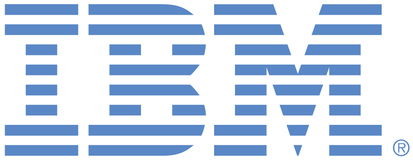
This is an IBM Automation portal for Integration products. To view all of your ideas submitted to IBM, create and manage groups of Ideas, or create an idea explicitly set to be either visible by all (public) or visible only to you and IBM (private), use the IBM Unified Ideas Portal (https://ideas.ibm.com).
Shape the future of IBM!
We invite you to shape the future of IBM, including product roadmaps, by submitting ideas that matter to you the most. Here's how it works:
Search existing ideas
Start by searching and reviewing ideas and requests to enhance a product or service. Take a look at ideas others have posted, and add a comment, vote, or subscribe to updates on them if they matter to you. If you can't find what you are looking for,
Post your ideas
Post an idea.
Get feedback from the IBM team and other customers to refine your idea.
Follow the idea through the IBM Ideas process.
Specific links you will want to bookmark for future use
Welcome to the IBM Ideas Portal (https://www.ibm.com/ideas) - Use this site to find out additional information and details about the IBM Ideas process and statuses.
IBM Unified Ideas Portal (https://ideas.ibm.com) - Use this site to view all of your ideas, create new ideas for any IBM product, or search for ideas across all of IBM.
ideasibm@us.ibm.com - Use this email to suggest enhancements to the Ideas process or request help from IBM for submitting your Ideas.

Hi Ben,
thanks a lot for your reply and thoughts! The versioning is currently used to be able to deploy one applications in two version where the configuration of queue names and so on is the same but for example the ESQL logic is implemented differently. In order to allow a quick fallback to the old version without any additional deployment the CI/CD-Pipeline automatically stops all the old versions whenever a new version will be installed.
In order to benefit of the improved performance of mqsipackagebar compared to mqsicreatebar I had to automatically rename the included project to receive a similar behaviour. Unluckily this is a kind of work-around as of missing functionality but at least it works as expected.
Kind regards
Jan
RFE Review. Thank you for taking the time to submit this idea for enhancement. Unfortunately on this occasion we do not intend to take this idea forward at this time. The version option on the mqsicreatebar command only works on cmf (compiled) message flows, and basically creates an equivalent flow resource but with a new name - unfortunately it doesn't cater for duplication of flow functionality such as attempting to open the same socket, or the same URL fragment for HTTP inputs ... and even in the MQ transport case, would you really want v1 and v2 of a message flow taking messages randomly from the same queue? Given these logistical problems, we don't think a version property is a good idea for the behaviour requested in the idea. A better alternative would be a formalised "clone" command for the runtime, or better support for "copy this flow and help me make relevant changes with scaling use cases in mind". If we have understood the real requirement here, perhaps the best approach would be to open a new idea on the cloning topic.
Sounds like a nice improvement to bring down build times with an automated CI/CD-pipeline.